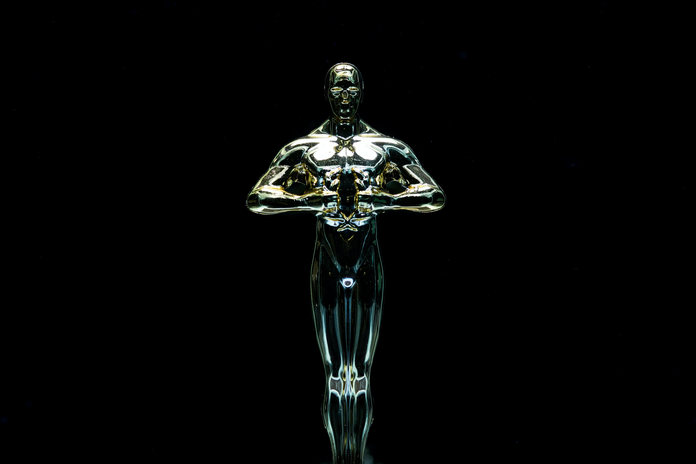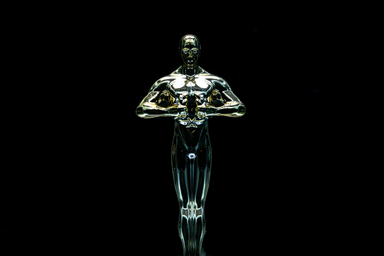Can you believe 2011 was 10 years ago? 2011 marked so many pop culture moments, including Adele’s rise to fame and the Royal Wedding between Prince William and Kate Middleton, but there is no annual creator of pop culture moments like the Academy Awards. Cinema continues to have a hold on pop culture even as we go into 2021 with the Oscars remaining prominent and prestigious. The Oscars honor some of the most important creators and performances in culture and entertainment each year.
However, there are some stark differences between what we saw at the 83rd Academy Awards in 2011 versus what we’re seeing this year at the 93rd Academy Awards. Mainly, the diversity in the nominations. With a history of almost exclusively white and male-dominated nominees, the 2021 Oscars seem to mark a shift towards honoring more women and people of color in cinema. This shift comes 5 years after the introduction to the now-famous hashtag #OscarsSoWhite. This hashtag was started in 2015 by media strategist and activist April Reign in response to the lack of representation for nominees of color at the 87th Oscars. Since 2015, the #OscarsSoWhite concept has remained a popular topic. Each year, even for other awards shows, there are immense pushes towards honoring BIPOC and women creators for these prestigious awards.
Now 6 years after the beginning of the biggest push towards diversity in the Oscars, let’s compare the winners and nominees from 2011 to the nominees of the 2021 Academy Awards. The categories that will be covered are Best Actor, Best Supporting Actor, Best Actress, Best Supporting Actress, Best Cinematography, Best Director, and Best Picture.
Best Actor and Best Supporting Actor back in 2011 featured no BIPOC nominees at all. Because of that, all of the winners were white. Best Actor and Best Supporting Actor went to Colin Firth and Christian Bale, respectively. Though we don’t know who will win these coveted categories at the 2021 Oscars, the nominations already reflect greater racial diversity. Both the Best Actor and Best Supporting Actor categories boast three BIPOC nominees out of five total nominees in each category. For Best Actor, the nominated men of color are Riz Ahmed for Sound of Metal, Chadwick Boseman for Ma Rainey’s Black Bottom, and Steven Yuen for Minari. The Best Supporting Actor category boasts Leslie Odom Jr. for One Night in Miami… and Daniel Kaluuya and Lakeith Stanfield, both for their performances in Judas and the Black Messiah. It is refreshing to see an overwhelming appreciation for BIPOC people in this prestigious category, but it is also important to note the notoriety of the nominations of Riz Ahmed and Steven Yuen specifically. Ahmed is the first Muslim and Yuen is the first Asian-American to be nominated for Best Actor.
Best Actress and Best Supporting Actress had the same fate in 2011. All the nominees in both categories were white, therefore both awards going to white women. The 83rd Academy Awards winners for these categories were Natalie Portman for Best Actress and Melissa Leo for Best Supporting Actress, respectively. Though 2021’s nominees reflect more racial diversity than the 2011 nominees, these categories do not include as many women of color compared to their male counterparts this year. This year, two out of five Best Actress nominees are people of color: Viola Davis for Ma Rainey’s Black Bottom and Andra Day for The United States Vs. Billie Holiday. The only BIPOC woman nominated for Best Supporting Actress is Yuh-Jong Young for her performance in Minari. Though there may not be as many women of color nominated compared to the amount of BIPOC men in their respective categories, it is important to note the groundbreaking nomination of Young as she is South Korea’s first Oscar-nominated actress.
Diversity is not just important in front of the camera, but behind as well. Two of the most prestigious awards in this sector are Best Cinematography and Best Director. Historically, both of these categories have been dominated by men, especially white men. The 83rd Academy Awards were (unfortunately) a great example of that. The winner for Best Cinematography was Walter Pfister for Inception, who did not deviate from the usual list of white male nominees. Unfortunately, this lack of diversity has not been updated in 2021. For the 93rd Academy Awards, all of the nominees for Best Cinematography are white men, excluding both women and BIPOC creators from this category. This exclusive list of nominees may also reflect the lack of BIPOC and women cinematographers in the industry in general. Similarly, 2011’s winner for Best Director was Tom Hooper for The King’s Speech, a category whose nominees were also made up of only men. However, the 2021 nominees for Best Director are where some of the most landmark nominations lie. Three out of five nominees are worthy of notice: Lee Isaac Chung for Minari, Emerald Fennell for Promising Young Woman, and Chloé Zhao for Nomadland. Korean director Lee Isaac Chung’s nomination is not historic, but it does not make it any less worthy of praise and attention. Emerald Fennell is the first British woman to be nominated and Chloé Zhao is the first-ever woman of color to be nominated for this award; 2021 amazingly marks the first year in which two women are in the running for Best Director at the same time. In addition, Fennell and Zhao are only the sixth and seventh women to ever be nominated in this category in all of Oscars history.
Best Picture is considered the most coveted award at the Academy Awards. All-encompassing and prestigious, winning this award represents overall amazing achievements for those both in front of and behind the camera. The winner of this category in 2011 was The King’s Speech. The King’s Speech is male-led, male-dominated behind the scenes, and only honors white actors and creators. Fortunately, 2020 marked a huge milestone in the history of this prestigious award: Bong Joon-ho’s win for Parasite, not only a movie with an all Korean cast with a Korean director, but a movie that was entirely in a non-English language. The 2021 nominees, fortunately, reflect similar ideals in diversity. The Best Picture nominees for this year’s Oscars are The Father, Judas and the Black Messiah, Mank, Minari, Nomadland, Promising Young Woman, Sound of Metal, and The Trial of the Chicago 7. Many of these films–not including The Father, Mank, and The Trial of the Chicago 7– overwhelmingly feature and honor creators of color and women, those who are often largely underrepresented in both awards shows and the cinema industry as a whole.
It is refreshing to see how the Oscars are beginning to understand the importance of the voices and performances of women and people of color in an industry that has been historically dominated by white men. Hopefully, the list of winners will similarly reflect this push. In addition, I hope we will continue to see more diversity and equity in both the nominees and the Academy itself with the Academy Aperture 2025 initiative.



